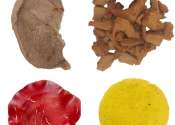Nutrition (also called nourishment or aliment) is the provision, to cells and organisms, of the materials necessary (in the form of food) to support life. Many common health problems can be prevented or alleviated with a healthy diet.
The diet of an organism refers to what it eats. Dietitians are health professionals who specialize in human nutrition, meal planning, economics, preparation, and so on. They are trained to provide safe, evidence-based dietary advice and management to individuals (in health and disease), as well as to institutions.
Poor diet can have an injurious impact on health, causing deficiency diseases such as scurvy, beriberi, and kwashiorkor; health-threatening conditions like obesity and metabolic syndrome, and such common chronic systemic diseases as cardiovascular disease, diabetes, and osteoporosis.









